
Streamline Your Trade with Trade Vista
Expert Assistance for All Your Import-Export Needs, Ensuring Smooth Operations and Compliance with DGFT Regulations.

The Importer Exporter Code (IEC) is a 10-character unique alpha-numeric number assigned to a person or entity. It is required for all export/import activities, including service exports. Without a valid IEC, the entity will be ineligible for benefits.
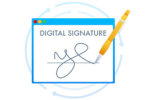
Export and Import Organizations (EXIM organizations) can apply for licenses online, which means they can also submit supporting documents electronically via the DGFT website. A Digital Signature Certificate verifies the authenticity of the document.

To relieve businesses, the Director General of Foreign Trade has made the following changes to the procedure for closing cases of default in export obligations under (a) the Advance Authorisation Scheme and (b) the EPCG Scheme.
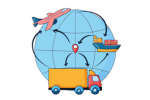
The Sale of Scrips is a DGFT service that enables exporters to transfer unused Duty Credit Scrips (DCS) to other importers and exporters. This makes it easier to take advantage of tax breaks and maximize export incentives.

A Free Sale and Commerce Certificate is issued to export any other item that is not restricted or prohibited from export. It confirms that the product is freely sold in the country but does not indicate that it has been evaluated for safety and efficacy and is registered for use there.

The government periodically imposes restrictions on the import and export of items. These restrictions assist the government in regulating the flow of goods into and out of the country and gaining control over supply and demand issues for those goods.

The Certificate of Origin (COO) contains information about the product, its destination, and the country it originated from. It is widely used in international trade and is necessary for exporters and importers to prove the product's origin.

The Remission of Duties or Taxes on Export Products (RoDTEP) is a scheme that the Indian government has recently rolled out to reimburse any tax, duty, or levy paid by exporters while exporting goods from India.

The status-holder position is assigned to goods and services exporters based on their performance. Exporters of goods/services who hold valid importer-exporter code no. (IEC) may apply to the Director General of Foreign Trade (DGFT) for recognition as' status-holders'.

The Advance Authorization Scheme allows inputs (raw materials) to be imported without paying any duties at Customs. These inputs must be physically incorporated into the product (after making regular allowance for waste), which is going.

The EPCG scheme aims to improve India's manufacturing capabilities and the quality and quantity of products exported. The scheme primarily benefits manufacturers looking to expand their business beyond India.
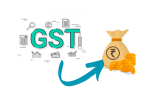
DGFT provides GST refunds for capital goods purchased under the Indigenous EPCG scheme. This allows exporters to reclaim GST on capital goods used in export production, encouraging domestic manufacturing and increasing exports.

Under this system, importers of paper and paper products must submit advance information online to obtain an automatic Registration Number. Importers must enter the Registration Number and expiry date of Registration in the Bill of Entry to allow Customs to clear the consignment. According to the import policy, paper and paper products cannot be imported without this number.
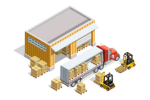
Manufacture and Other Operations in Warehouse Regulations (MOOWR) is a scheme established under Section 65 of the Customs Act of 1962. The Central Board of Indirect Taxes and Customs (CBIC) has launched a revamped and streamlined program to encourage investment in India and strengthen Make in India. This program allows you to manufacture and perform operations in a Customs-bonded warehouse.

The Registration Cum Membership Certificate (RCMC) is required for the following purposes:
An RCMC is issued by any of the Authorized Export Promotion Councils (EPC).

Chemicals, organisms, materials, equipment, and technologies have multiple applications. End-use can occasionally be used to create weapons of mass destruction. These are dual-use items; in India, they are classified as SCOMET.
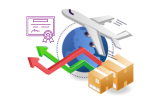
The DFIA scheme, which replaced the Duty-Free Replenishment (DFRC) scheme on May 1, 2006, is similar to the Advance Authorisation Scheme, with a few differences. The license granted under the DFIA scheme allows duty-free import.

AEO is a facilitation scheme, which means the holder of this certificate is entitled to certain privileges, benefits, and exemptions on account of import and export. In India, AEO certification is three-tiered (T1, T2, T3), and Indian Customs launch it.